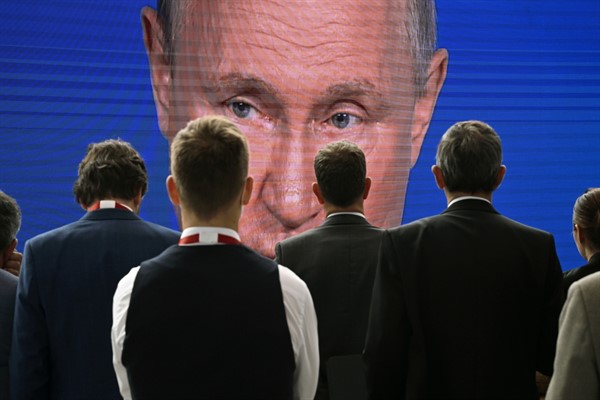Shortly after Russia invaded Ukraine in February, headlines spread claiming that a new iron curtain had fallen across Europe. Russia’s economic and political isolation, they claimed, had come hand-in-hand with digital isolation. As the United States and its allies introduced technological sanctions against Russia, numerous Western tech companies also stopped doing business there, making their products and services unavailable to Russians. At the same time, the Russian state had moved quickly to block any websites that offered information about the war, especially those that criticized the Kremlin’s actions.
It is well-known that Russian President Vladimir Putin sees an open and free internet as one of the biggest threats to his power. For the past decade, he’s been fighting for what’s been called a “sovereign internet”—that is, state control over technology and networks within its borders.
In today’s multi-stakeholder model of internet governance, states are only one of many actors involved in setting policies for the internet’s infrastructure, use and regulation. They are forced to listen to the opinions of scientists, technical specialists and the international organizations that regulate the internet’s foundational elements and facilitate the creation of international digital standards. The International Corporation for Assigned Names and Numbers, or ICANN, for instance, regulates issues related to the Domain Name System and IP addresses, two fundamental elements of the internet’s infrastructure, while the Internet Engineering Task Force, the Internet Society and the World Wide Web Consortium help to create and promote standards for other foundational elements.

